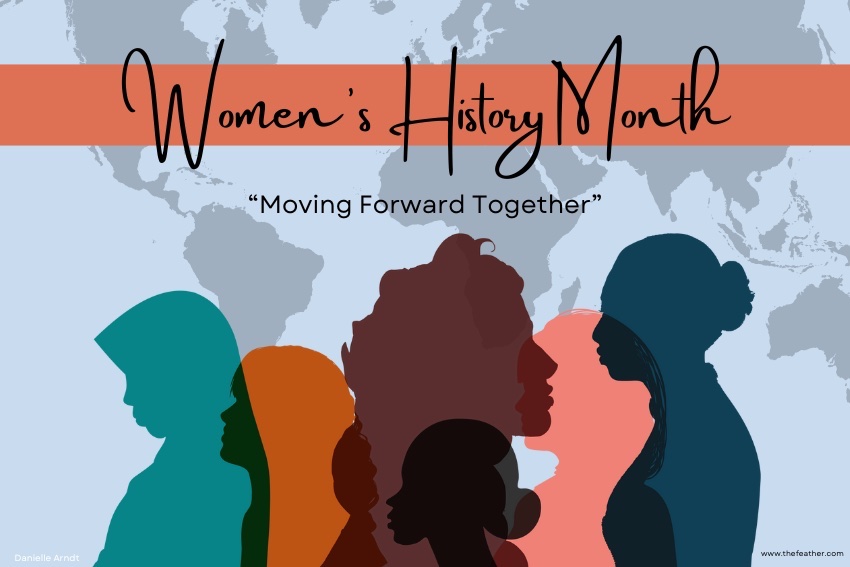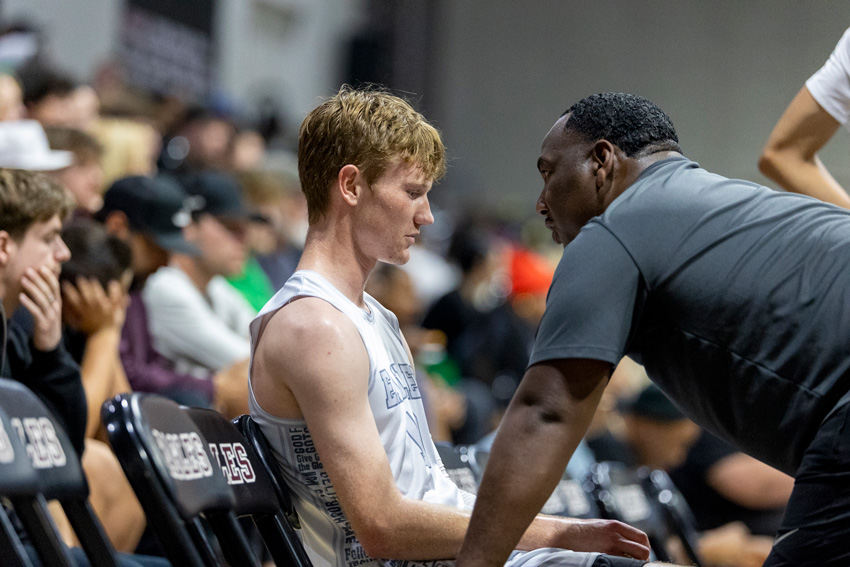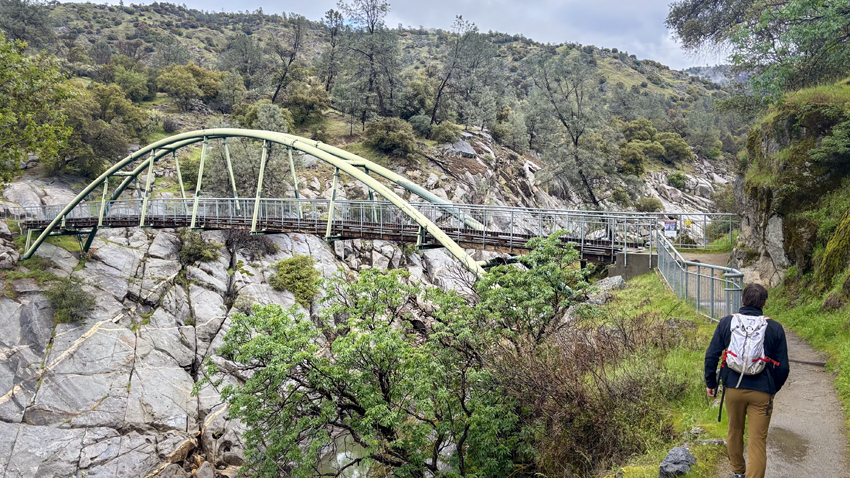Attendees share significance of student journalism, gathering
The JEA/NSPA Spring National High School Journalism Convention partners with the National Scholastic Press Association and the Journalism Education Association to host an annual gathering of scholastic journalists and their advisers in San Francisco. This year there are over 4,500 attendees from 525 schools from 40 states, in addition to Canada and China attending the convention, April 12-14.
Over 400 sessions and workshops, seminars, discussion groups, and keynote speakers provide attendees opportunities to improve their individual and collective skills. There are also special workshops and sessions for advisers and administrators as well for yearbooks, newspapers, broadcast, news magazines, and online newspapers.

The NSPA and JEA organizations seeks to reward student journalists for their work and dedication to their publications. The organizations offers a variety of team and individual awards for journalists to compete in. Session presenters encourage classroom learning and real-world application of skills learned.
Advisers, convention leaders and student attendees share their perspective of the convention and what they learn from attending the convention’s sessions. Additional perspectives are encouraged to be shared in the comment section below.
Sabrina Schimitz, session instructor, yearbook sales representative with Walsworth Yearbooks
April 14, 2018
“On your high school campuses, nobody does what you do. It is real easy to get stuck in a rut and feel like your lacking ideas; you don’t know how to make it new and different. Coming to conventions like this, you can talk to other people that know your struggles, know your obstacles and can help you overcome them. (During my session) we talked about editorial leadership. How to get people to work for you so that you can focus on making a great publication. To me, the biggest thing in student leadership on a staff is people over publication. If you can get people to work, you can teach them the rest.”
Broadening horizons
Genevieve Martin, Marjory Stoneman Douglas High School, photographer
April 14, 2018
“(At the convention) I really want to expand my horizons on every topic. I’m a photographer, and I would love to learn more on other things like writing and design. We (student journalists) give a different perspective on life, and I feel that the information we see is different than most other journalists. It gives a different perspective that I think is important.”
Convention needs more student-led sessions
Paul Kandell, Palo Alto High School, adviser for Verde magazine and The Paly Voice
April 13, 2018
“I didn’t teach anything today because my students did the teaching. That’s a way better way to go because my students are totally capable of delivering whatever I would and they are more engaging. Tomorrow I am going to teach a session, but it’s mostly to advisers. I was thrilled with how the student-led sessions went today, and I think we should have more of them. One (student-led) session focused on diversity and how we can do better in our newsrooms, how the industry should be better and how our work should reflect more diversity. The other session was with the (student) panel on pushing the envelope in web journalism and digital journalism.”

Convention encourages aspiring student journalists
Maddie Hawes, The Kirkwood Call, web editor
April 13, 2018
“I see it (the convention) impacting the kids who are into student journalism. I value these conventions for myself because I’m passionate about journalism and its inspiring in a field like this to broaden your understanding of the resources out there to go to. This is the kind of field where you can always improve on your skills. I have not attended any of the sessions yet. I was a panelist on here, talking and hearing other journalists in primarily web areas discuss how they manage their websites. Even as a panelist, I was writing things down to improve myself.”
Conventions connect student journalists
Mike Hiestand, Student Press Law Center, legal consultant
April 13, 2018
“I think it (the convention) is a wonderful opportunity to come and see what your peers are doing. Particularly for high school student journalists, we deal with a lot of censorship. Every time we come to these conventions we hear a lot about the censorship that has taken place. I have had (taught) two sessions so far and I have three more tomorrow. I am teaching on censorship issues, access to records and social media. I just did session for people who are thinking about going to law school.”
.@KatinaParon shares ways editors can help journalists improve their first-drafts in her session, “10 steps to better first drafts.” Paron encourages student leaders to coach and invest in less-experienced writers. #thefeather @thefeather @nhsjc #nhsjc @NSPA @nationalJEA pic.twitter.com/UPkWkXBT0x
— Sam Cross (@SamKCross) April 14, 2018
National conventions provide new perspective on student journalism
William Sallomi, The Paly Voice, editor-in-chief
April 13, 2018
“I’ve been to a local convention before that we actually host at our own school and I did a lecture there, but this is my first time going to a national event like this. I was amazed by how many people actually showed up and the breadth of places they come from especially only having been to local conventions that we hosted ourselves. That was really awesome to see how wide of an impact this convention has and how many people it attracts. I got to go to some really cool sessions and learn about spread design which is really interesting to me because I don’t work on a yearbook staff.”
Convention provides valuable life experience
Julieanne McClain, session instructor, journalism adviser
April 13, 2018
“I just taught a session on how to be an effective leader. I think conventions are important for a lot of reasons. Anything that gets you to learn more about your craft and to improve is always a good thing. From a practical standpoint, most teenagers will go on into fields where they participate in conventions like this as adults. To have this experience in this super overwhelming environment with lots of floors and sessions can be a growing experience for them.”
Convention bigger than expected
Thomas Short, Daniel Pearl Magnet High School, broadcaster
April 13, 2018
“There are so many people that come here and participate in it. You wouldn’t think that many people would be into this. Surprisingly there were a lot more people than I expected to be here. I’ve learned a lot more about broadcasting because we do a broadcast network online and I’ve learned a lot more about lighting, shortcuts, soundbites and some of the writing aspects of journalism.”
Convention offers fun learning experiences
Gary Lundgren, Associate Director for the National Scholastic Press Association
April 13, 2018
“Right now it (student journalism) is impacting it (the country) a lot. I think people are realizing that journalism is more important than ever. There needs to be people who hold our government and our leaders accountable. A blogger at home doesn’t necessarily do that, so I think we are going through a phase like the country did after Watergate. There’s about a 1,000 reasons (why journalism conventions are important). There are tremendous learning opportunities, opportunities to compete in write-off competitions; it’s fun to get recognized for outstanding work and it’s also fun to just be with kids who are journalists from different schools.”
“Quality work is modeled first, followed second. If others can’t see you doing it, they won’t do it themselves.” Julieanne McClain teaches, “Ten habits of a highly effective editor” at the 2018 NSPA/JEA convention. #thefeather @nhsjc #nhsjc pic.twitter.com/rHg9u0eM9t
— Sam Cross (@SamKCross) April 13, 2018
Learning communication skills
James Pratt, Newbury Park High School, Panther Prowler
April 13, 2018
“I spent three hours today learning how to better interview people. We took a personality quiz so we could better relate to people we are interviewing and follow them into the right direction so we can get good quotes. Student journalism is important because it trains future journalists and real journalists are really important.”

Conventions reveal the true scale of student journalism
Mary Kay Downes, session instructor, adviser for the Odyssey yearbook
April 13, 2018
“They (conventions) are important because it is usually the first time that students really understand how big it is to be a student journalist. When they see 5,000 people all together, all learning the same thing, they get an excitement and a thrill that they would have never had before. To me, the most the important thing is that you understand that you are a part of a hole and the hole is absolutely huge. When you go to those award ceremonies, you realize that this is something big.”
Learning to communicate
Mark Ramos, Andress High School, yearbook staffer
April 13, 2018
“So far what I’ve learned is that you really need to communicate within your staff to make sure that everyone is on the same page. You really can’t leave anything behind when it comes to the stories. You really have to be able to grab everything and everybody has to be on board to make sure everything is grabbed.”
Additional perspectives are encouraged to be shared in the comment section below.
For more on San Francisco, read Humans in Union Square: Commuters, tourists share insight. For more articles, read EDITORIAL: Are video games leading to violence?





